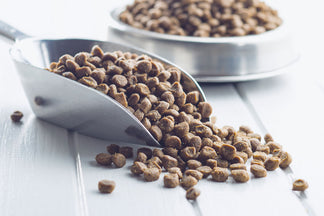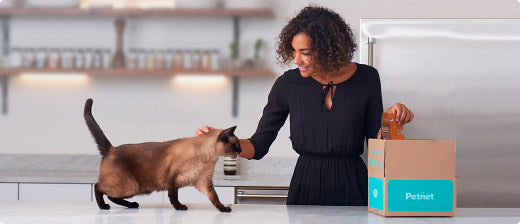Cats are notoriously particular about many things. They favor certain toys, beds, and areas in your house, and you’ve probably realized how picky they are about food. But these dinnertime details may make a big difference in your cat’s eating habits without even being on your radar.
1. Separate the food and water dish
An estimated 95% of cat owners have side-by-side food and water dishes. However, these bowls don’t suit the natural eating and drinking behavior of your kitty. Your cat may be reluctant to hydrate if this is your feeding setup.
In nature, animals have evolved to protect themselves. One of their common behaviors is avoiding water sources where cadavers are immersed or nearby, since contaminated water may cause waterborne diseases. So, cats instinctually don’t want to drink next to their feeding bowls. Solution? Place your cat’s food bowl as far from the water bowl as possible, with a minimum of 10 feet in between. This should encourage your kitty to drink more than he already does.

2. No group dinners
Cats are solitary hunters, meaning that they kill and eat their prey alone. Being a solitary hunter is a survival advantage cats because they need to find enough food to sustain only themselves and their kittens. Cats typically prefer smaller animals with body weights under 3.5 ounces like mice, voles, birds, rabbits and lizards. And even though obtaining food provides her with valuable energy, finding and capturing the prey costs the cat both energy and time.
It makes sense to think cats enjoy eating together. After all, cat are social animals, but while they can appreciate each other’s company, the big exception is dinner time.
Eating in each other’s proximity imposes stress on both cats. As a result, they may eat faster than normal or one kitty will eat more than usual. Cats can sometimes eat less, or even stop eating, because of the stress that another cat can inflict on them.
Ideally, pick a spot where your cat won’t be bothered and move her water dish away from the food bowl. If you feed your cat in a way that caters to her instincts, you're ensuring calmer, happier feedings.

 Food
Food
 Food
Food
 Food
Food
